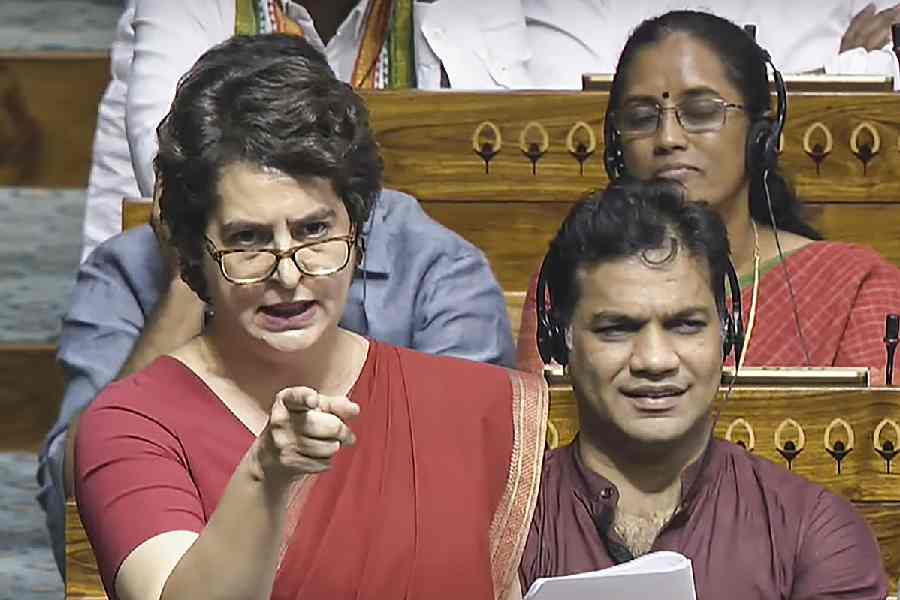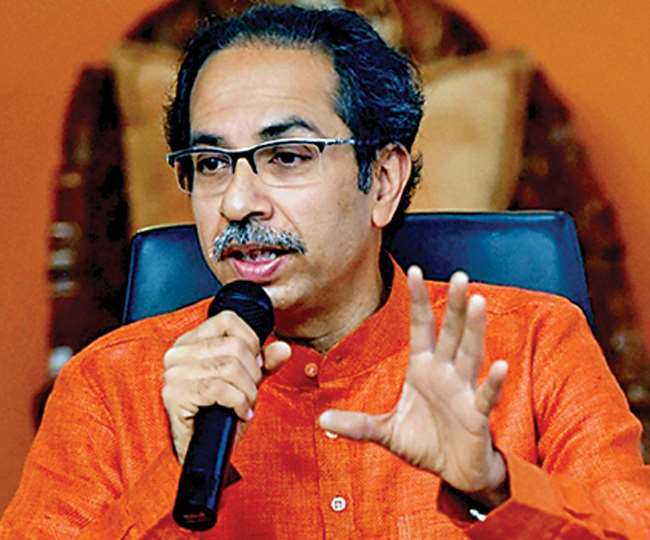Priyanka Gandhi’s Operation Sindoor Speech Shakes Modi Government | Accountability for Pahalgam Terror Attack & Ceasefire
By: Javid Amin | 29 July 2025
A Turning Point in the Lok Sabha
In one of the most electrifying moments of the recent Lok Sabha session, Priyanka Gandhi Vadra stood up and delivered a fierce, emotional, and politically charged speech that jolted the entire nation. The Congress leader, known for her sharp political instincts and legacy rooted in India’s democratic fabric, launched a scathing critique of the Modi government over its handling of Operation Sindoor, the Pahalgam terror attack, and the mysterious ceasefire announced at the peak of what many believed was a military upper hand.
The speech was not just a political attack—it was a call for truth, transparency, and accountability, delivered with a blend of emotion, historical memory, and national concern. As the ruling benches sat in silence, Vadra questioned decisions that have shaped India’s recent security narrative and touched upon personal loss, invoking her father’s martyrdom and her mother’s tears.
Operation Sindoor – The Ceasefire That Shook a Nation
Operation Sindoor, launched as a retaliatory strike against escalating cross-border terrorism, began with promises of resolve and justice. The Indian public rallied behind the armed forces, believing the campaign would deliver a long-overdue reckoning against those responsible for heinous attacks like the Pahalgam massacre. However, just as momentum seemed to favor India, a sudden ceasefire was announced—not by Indian leadership, but by then U.S. President Donald Trump.
This unexpected move left many questioning whether India had surrendered strategic leverage at the behest of foreign influence.
Priyanka Gandhi asked in Parliament:
“Why was the war stopped when the enemy had nowhere to go? Why did this government allow another country to dictate terms on our soil?”
Her piercing words resonated with a public that had been fed a narrative of dominance, only to discover that critical decisions were made outside Indian democratic structures. The speech reignited debate over the Modi government’s foreign policy dependency and its real commitment to national sovereignty.
A Ceasefire with No Answers
Priyanka Gandhi’s central argument was about accountability—or the lack thereof. She underscored that the Modi government failed to explain the reasons for the abrupt halt in military operations. The decision not only demoralized the public but also reportedly disoriented troops on the ground, many of whom had prepared for a prolonged and strategic engagement.
While the official line referred to “peace diplomacy” and “regional stability,” Vadra countered with the stark reality:
“This was not a peace accord—it was an escape route for those who had blood on their hands. We owe our soldiers and civilians more than silence and spin.”
The Opposition has since demanded the release of internal communications and diplomatic notes from that period, pressing for a Joint Parliamentary Committee (JPC) probe. While the government continues to evade, the storm triggered by Vadra’s speech is unlikely to settle without a reckoning.
The Pahalgam Terror Attack – A Bloody Trail in Baisaran Valley
The July Pahalgam terror attack, in which 26 civilians were mercilessly killed in the Baisaran Valley, remains one of the darkest chapters in recent memory. Vadra pulled no punches when she reminded the House of this tragedy and the government’s failure to secure a known conflict-prone zone.
“What security was in place in Baisaran? Where was the intelligence? Where was the leadership when bullets rained on our people?”
This was not just rhetoric. Multiple intelligence alerts, some allegedly from military intercepts, had reportedly warned of an impending attack orchestrated from across the border. These alerts, according to media investigations and whistleblower accounts, were either downplayed or ignored entirely.
The opposition’s charge is simple yet damning: the government’s obsession with optics and propaganda has overridden ground-level security concerns. Vadra’s invocation of the victims’ names—families who had lost not just lives but faith—was a powerful indictment of a regime accused of being more invested in headlines than in human lives.
Intelligence Ignored – Who’s Responsible?
One of the most disturbing claims made in Priyanka Gandhi’s speech was that the intelligence apparatus had already detected the brewing threat in the region. According to her, repeated warnings were issued about a terror plan allegedly hatched in Pakistan, complete with specifics about timing and location.
“If our agencies knew, why did the Prime Minister not act? Who is answerable for these 26 deaths?”
The allegation strikes at the heart of national security governance. If true, this would mean that decisions were either delayed or dismissed at the highest level—a failure not just of operational intelligence, but of political will.
Security experts are now urging a parliamentary audit of the intelligence-sharing system, suggesting that the Modi government’s centralized command culture may be choking field-level inputs. In a democracy, Vadra argued, power must come with proportional responsibility—a lesson the government appears unwilling to learn.
Propaganda Over Responsibility – Priyanka’s Core Accusation
Perhaps the most impactful part of Priyanka Gandhi Vadra’s speech was her indictment of the culture of credit-seeking that she says has become the hallmark of the Modi era. In her words:
“Leadership is not about taking credit in good times and hiding in bad ones. It’s about responsibility, about facing the music when things go wrong.”
This attack goes beyond the issue of Operation Sindoor. It’s a philosophical critique of the ruling party’s approach to governance—more invested in photo-ops, social media blitzes, and choreographed narratives than in actual policymaking or institutional reform.
Vadra pointed out that despite the wave of nationalism post-Sindoor, nothing concrete changed on the ground. Victims’ families were forgotten, border policies remained ambiguous, and no systemic changes were made to prevent future attacks.
This is a dangerous trend, according to experts: when politics is run like a brand campaign, truth is the first casualty.
Sonia Gandhi’s Tears and the Weight of Martyrdom
In a rare and emotional moment, Priyanka Gandhi directly addressed snide remarks made by some ruling party members about her mother Sonia Gandhi’s visible distress in the House. She clarified that those tears were not for political theater—they were real, raw, and rooted in personal tragedy.
“Those were the tears of a woman who saw her husband martyred for this nation. I speak because I know the pain of losing a loved one to terror.”
This deeply personal interjection silenced the House and reminded the country that for the Gandhi family, terrorism is not a debating point—it’s a lived horror. Her father, former Prime Minister Rajiv Gandhi, was assassinated in 1991 by a suicide bomber. Her grandmother, Indira Gandhi, was killed by her own bodyguards.
This personal grief gives emotional credibility to Vadra’s call for justice. When she demands answers about security lapses or intelligence failures, she does so not just as a politician but as someone who has lived the cost of complacency.
A Nation Asks – What Happens Next?
With Priyanka Gandhi Vadra’s speech still echoing in public discourse, the question now is: What happens next? Will the Modi government respond with transparency? Will there be a parliamentary inquiry? Or will the strategy continue to be silence and spin?
The Congress party has already filed requests for classified debriefings on Operation Sindoor, a white paper on the Pahalgam attack, and a JPC probe into the intelligence failures. Civil society, veterans’ groups, and even retired intelligence officials are also speaking out, emboldened by Vadra’s courage.
More importantly, voters are beginning to question the dominant narrative of strength, asking whether projected strength is enough if it’s not backed by honest governance and ethical decision-making.
Bottom-Line: A Defining Speech in Indian Political History
Priyanka Gandhi Vadra’s Operation Sindoor speech is likely to go down as one of the defining political moments of this decade. It was not just an attack—it was a manifesto for truth, a call for empathy, and a challenge to the prevailing culture of authoritarian evasion.
In her calm yet fiery tone, she united emotional memory with policy critique, personal pain with national accountability. Whether this results in real change or not, it has undoubtedly shifted the tone of political debate in India.
As the nation prepares for another electoral cycle, leaders will now be judged not just by their slogans but by their answers.



